We have also built on the foundational work done by the UN Secretary-General’s High-Level Panel on Digital Cooperation on creating new opportunities for progress on the Sustainable Development Goals (SDGs), including SDG 3 on health and well-being for all, through ‘common rails’ and ‘guard rails’ on digital technologies. Data, the lifeblood of the digital economy, has been a key theme in our discussions.
Digital’s emerging frontiers of autonomous intelligent systems call for much more interdisciplinarity than what we encountered in the 1980s. Simply put: they require governance.
The policy reflections in the Commission have been a nice complement to my work at the International Digital Health and Artificial Intelligence Research Collaborative or
I-DAIR, which can be envisioned as a ‘distributed CERN’, harnessing the digital transformation responsibly and inclusively for UHC. I-DAIR is inspired by the call for data and AI commons and new models of collaboration to build global public goods coming out of the UN Secretary-General’s Panel. I-DAIR’s hubs and spokes geometry aims to connect and convene young researchers, especially from emerging geographies of innovation, to work on global health challenges or ‘pathfinders’ in the I-DAIR lexicon. The Commission’s reflections and research, in particular its outreach to youth, has encouraged us in this regard.
Why does this matter? In my experience, the deepest inequities are about knowledge-making. Conversely, if we can lower barriers to knowledge construction in any domain—level the playing field so to speak—we can make its benefits more widely available. This is what excites me most about I-DAIR.

I-DAIR: A global platform for digital health and AI research, collaboration, and governance
When I studied engineering, I was fascinated by the power of information representation. Tiny switches that manipulated information stored as 0s and 1s could do the most complex calculations known to humans in no time. Digital technology inspired the feeling that you could model anything and speed up problem solving endlessly. Now, my knowledge of the power of digital is tempered by an understanding of its limits and its risks. Digital’s emerging frontiers of autonomous intelligent systems call for much more interdisciplinarity than what we encountered in the 1980s. Simply put: they require governance.
In the 1990s, when I started as a young multilateral diplomat, I believed somewhat idealistically that multilateralism was the great leveler. Every country—rich or poor, big or small—had a voice, a vote, and multilateral institutions worked to everyone’s advantage. I still keep the faith, but my optimism is tempered by realism. We have to work hard every day to make multilateralism count, and collaboration across borders can take many forms, and involve many actors from academia, businesses, and civil society. Forums and processes have to be architected well to be inclusive and to promote international learning. The stakes are especially high when it comes to bridging digital divides and striving for health equity.
Health is our capstone piece in I-DAIR, a reminder that multilateralism exists for a global purpose, and digital technology is not an escape from our analogue world but a means to addressing its challenges.
The key to I-DAIR’s success is making the two arches of multilateral science governance and digital technology governance come together in the concrete context of a global endeavour. Health is our capstone piece in I-DAIR, a reminder that multilateralism exists for a global purpose, and digital technology is not an escape from our analogue world but a means to addressing its challenges. This integrated view of governance and impact, we hope, will help us achieve our goals, including interoperability and collaborative use of data, investments into human capacity and digital infrastructures, and developing the public goods—tools, models, benchmarks and governance insights—needed to democratise the use of emerging digital technologies for health.
The work of the Commission is incredibly timely. The COVID-19 pandemic has reminded us why health matters and why global health should be one of the highest multilateral priorities. Importantly, it has underlined how crucial science and technology are to achieving health and well-being for all. I am confident that the Commission’s recommendations will help create the right enabling policy environment for the responsible, inclusive, and impactful use of digital technologies and data for health.
United Nations Secretary-General’s Envoy on Technology. CEO and Director, International Digital Health & AI Research Collaborative (I-DAIR). Professor of Practice, the Graduate Institute, Geneva.
-
This author does not have any more posts.

